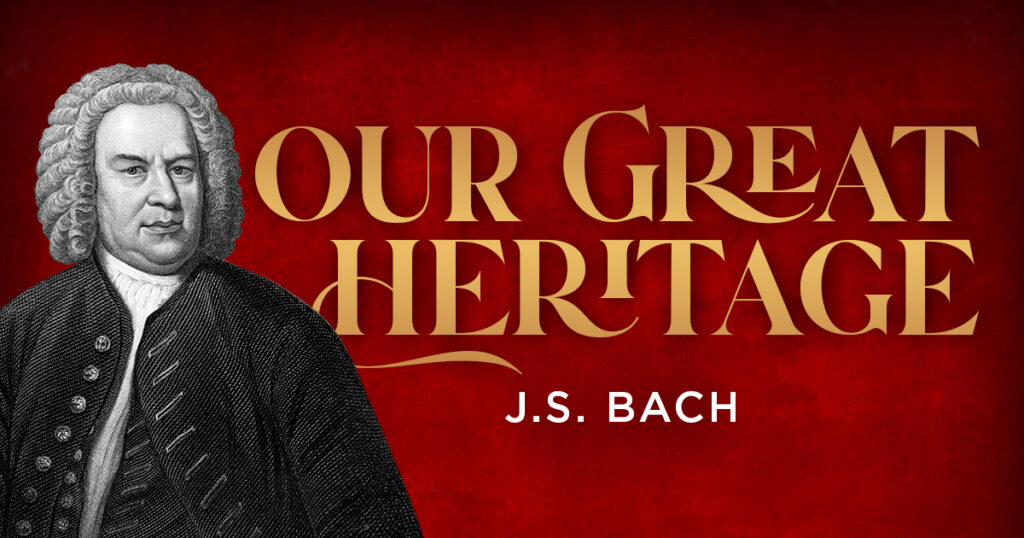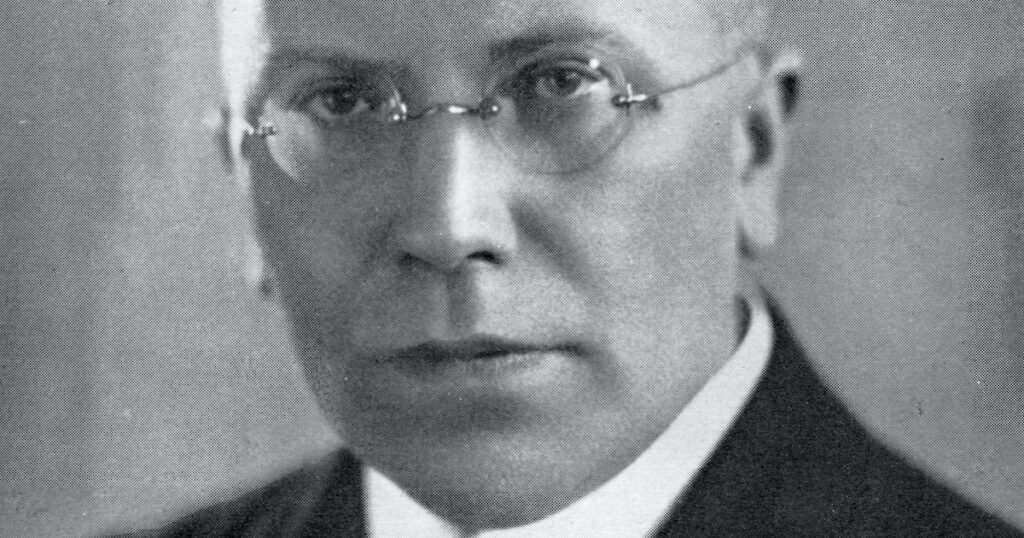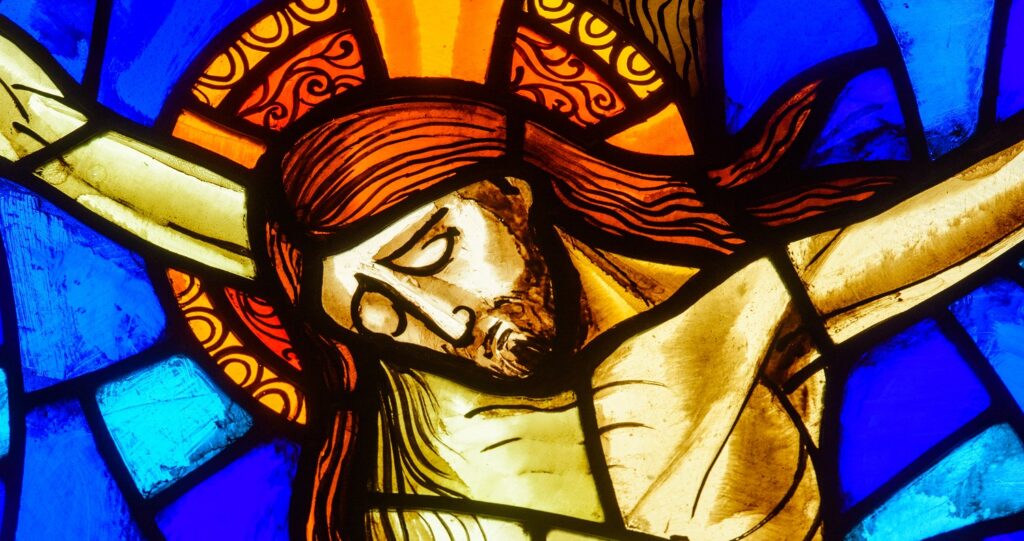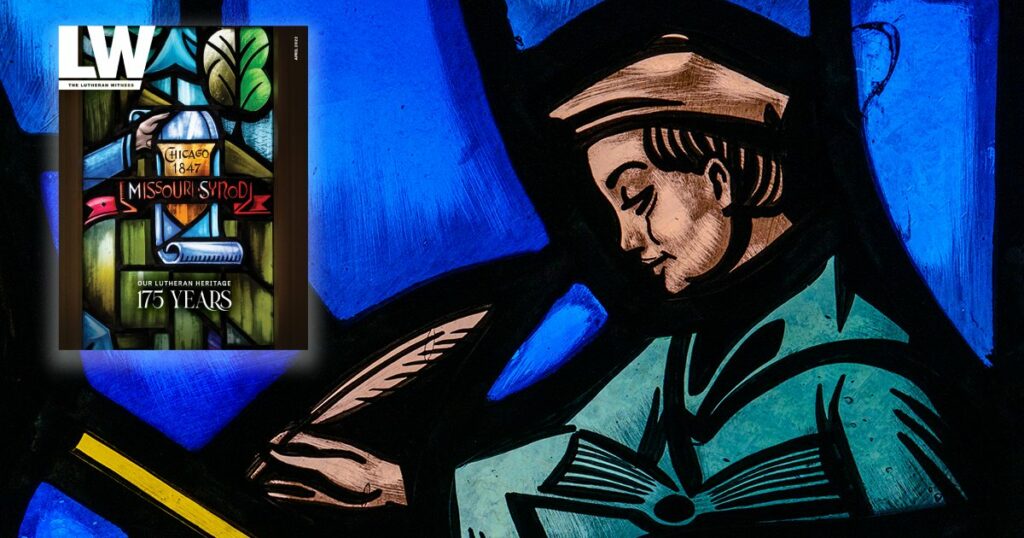J.S. Bach
A.D. 1685–1750
This talented Lutheran musician continues to influence our music in church, in the symphony, and on the radio.
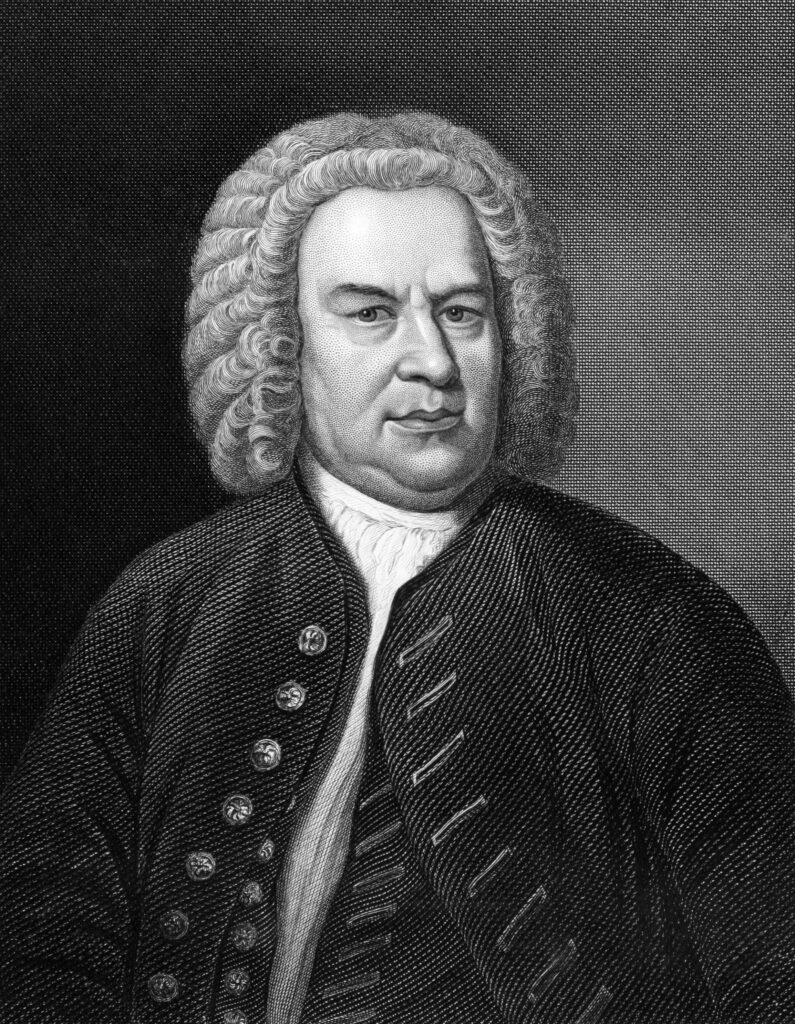
In this series, Lutheran historian Molly Lackey will trace the history of the church, from the time of the apostles through the twentieth century. As the Body of Christ, our history transcends time, country and citizenship: “God’s Word is our great heritage.”
Imagine you’re sitting in the pew of St. Nicholas Church in Leipzig, Germany, on April 7, 1724. It’s Good Friday, and you’ve come for the Vespers service. The music director that the city hired just last year, Johann Sebastian Bach, has written a new piece of music that will be performed tonight. The 39-year-old kantor is clearly a genius, with a massive personality to go along with his incredible talent: sociable but sensitive, profoundly pious but with a great capacity for anger, you and the rest of the city have had a bit of a hard time figuring him out. But one thing’s for sure: This man lives for music, especially music that shares the Word of God.
“Shh!” someone hisses at a pair of chattering adolescents as the oboes, flutes, basso continuo and strings begin to undulate with the opening notes of Bach’s new piece: St. John’s Passion. The music itself begins to tell the story of Our Lord’s passion, even before the words begin: The sounds are somber and dissonant, but then meld together into a beautiful melody, breaking your heart as they seem to represent in music the piercing agony endured by Christ on the cross. Then the choir begins:
Lord, our ruler, Whose fame In every land is glorious! Show us, through Your passion, That You, the true Son of God, Through all time, Even in the greatest humiliation, Have become transfigured!
From ten-year-old orphan to kantor of Leipzig
Johann Sebastian Bach was born in 1685 to a very musical family in the city of Eisenach, the same city where a young Martin Luther had attended Latin school and later had translated the New Testament into German while hiding under an assumed name in Wartburg Castle. Johann Sebastian, the youngest of eight, was orphaned at age ten. He then moved to live with his 24-year-old brother, Johann Christoph.
The young Bach received a thorough musical education from the many other gifted musicians in his family, and he also attended gymnasium (secondary school) where he learned Latin, Greek and theology. Johann Sebastian received further education, both in the broad liberal arts and in music, at the prestigious St. Michael’s parochial school in Lüneburg, where he also played the organ and sang in the church choir. By 1703, at age 18, he was done with school and looking for work.
Bach’s first position as a church musician was for the recently founded Neue Kirche (New Church) in the Thuringian city of Arnstadt, in central Germany. Bach’s reputation while he was there was rather poor. The adolescent Bach was infamous for his temper, poor relations with other musicians, and lazy attitude. He got into a street fight with his bassoonist, and, after being granted a four-week absence from his duties so that he could hear the composers Johann Adam Reincken and Dieterich Buxtehude perform, he did not return to Arnstadt for four months.
After four tumultuous years, Bach landed another organist position, this time in the city of Mühlhausen. With a substantially higher salary and a wife, his second cousin Maria Barbara Bach, Johann Sebastian seems to have settled down for the time being — though he was jailed for a month in 1717 in Weimar after he found himself on the wrong side of the duke and his court. Though he held several positions over the course of his life, Bach’s longest and most significant role was as Thomaskantor, music director for the churches of Leipzig (including St. Thomas, hence the name). Bach worked in Leipzig from 1723 until his death in 1750, from complications of a botched eye surgery.
God’s Word in music, proclaimed across the centuries
Bach showed a profound gift for music from an early age, one that he clearly cultivated in his adult life. Johann Sebastian Bach wrote over 1000 pieces of music that are still extant today. He wrote both sacred and secular music, in both vocal and instrumental forms. Bach believed that music should strive to give glory to God and provide recreation for the soul. Further, he held that music played a very important role in the life of the Christian: A marginal note he wrote next to 2 Chronicles 5:13 in his Bible reads, “Where there is devotional music, God with his grace is always present.”
This view of music has endured within the Lutheran church, especially with regard to worship. Bach has inspired countless other church musicians — internationally regarded composers like Felix Mendelssohn and Carl Schalk, and innumerable organists, pianists and choir directors whose largely anonymous labor keeps the Word of God in the mouths of His people from generation to generation.
Further, Bach is known far beyond the confines of the Lutheran church, or even of Christendom broadly. Bach’s works are among the most performed musical pieces of all time, beloved by Christians and non-Christians alike. In fact, in the early 1950s his St. John’s Passion was performed as a complete service — as it was originally composed and performed in Leipzig in 1724 — in Hungary while it was under an anti-Christian communist regime, as a way to get around strict rules regulating what kinds of music church musicians were allowed to play.
The Word of God is living and active, including whenever and wherever it is sung. The beautiful music of Johann Sebastian Bach continues to bring glory to God and catechesis, consolation and recreation to Bach’s neighbors — even those of us living more than 250 years after his death.
Editor’s Note: The next installment of this series, on father of the LCMS C.F.W. Walther, will be posted two weeks from today. Check back then or follow us on social media to catch it!
Image: “J.S. Bach,” engraving by August Weger after a painting by Hausmann in 1735. (Source: Getty Images).


